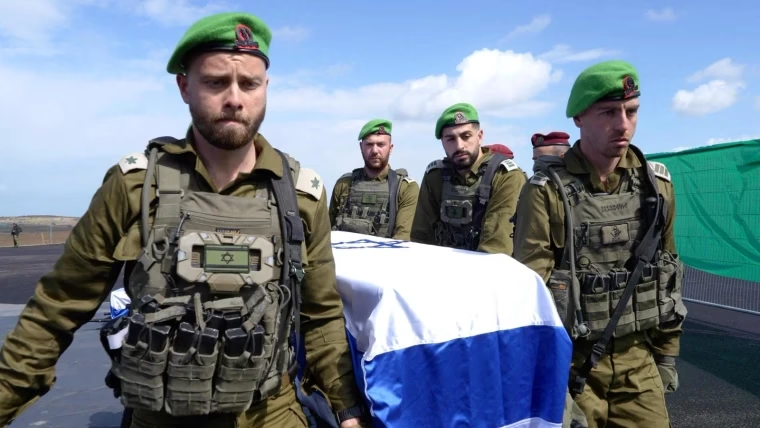In a significant development in the ongoing conflict between Israel and Hamas, five hostages were freed from Gaza on February 22, with a sixth expected to be released shortly. The releases are part of a ceasefire deal that has brought a temporary pause to the war, which began with Hamas’ October 7, 2023, attack on southern Israel. In exchange, Israel is set to release 602 Palestinian prisoners and detainees, marking a critical step in the fragile truce.
Details of the Hostage Release
The freed hostages include:
- Eliya Cohen, 27
- Omer Shem Tov, 22
- Omer Wenkert, 23 (all seized from the Nova music festival during the October 7 attack).
- Tal Shoham, 40
- Avera Mengistu, 39 (released in southern Gaza’s Rafah).
A sixth hostage, Hisham Al-Sayed, 36, is expected to be released in Gaza City. Al-Sayed and Mengistu have been held by Hamas since they entered Gaza voluntarily around a decade ago, while Shoham was abducted from Kibbutz Be’eri along with his family, who were freed in a November 2023 truce.
Emotional Scenes in Israel
The releases have sparked emotional reactions in Israel, where hundreds gathered in Hostages Square in Tel Aviv to celebrate the return of their loved ones. Among them was Yael Alexander, whose son, a dual U.S.-Israeli national, was abducted from a military base near Gaza.
“It’s giving me a lot of hope that our son Edan will be next,” she said.
However, the public ceremonies organized by Hamas, where hostages were paraded on stage, have drawn widespread criticism, including from the United Nations, which condemned the “parading of hostages.” Hamas defended the events as a show of Palestinian unity.
The Tragic Case of the Bibas Family
The ceasefire faced a potential derailment following the misidentification of a body initially believed to be that of Shiri Bibas, a hostage kidnapped with her two young sons and husband. However, on February 23, Hamas handed over another body, which was confirmed to be Shiri’s.
The Bibas family has become a symbol of the trauma inflicted on Israel during the October 7 attack. Forensic analysis revealed that Shiri’s sons, 10-month-old Kfir and 4-year-old Ariel, were killed “in cold blood” by their captors. Hamas claims the family died in an Israeli airstrike, a claim disputed by Israel.
For more on the Bibas family tragedy, visit CNN: Israel-Gaza Conflict.
Ceasefire and Future Prospects
The ceasefire, which took effect on January 19, has brought a temporary halt to the fighting, but the path to a lasting peace remains uncertain. The deal includes the release of 33 hostages in its first stage, with around 60 more still held in Gaza, less than half of whom are believed to be alive.
Both sides have expressed willingness to begin talks on a second stage of the ceasefire, which aims to secure the release of all remaining hostages and the full withdrawal of Israeli troops from Gaza.
For insights into the ceasefire negotiations, visit Al Jazeera: Israel-Gaza Updates.
Humanitarian Crisis in Gaza
The war has taken a devastating toll on Gaza, with Palestinian health authorities reporting at least 48,000 deaths and widespread destruction. Hundreds of thousands of Gazans are living in makeshift shelters, relying on aid trucks for survival.
The conflict has also displaced millions, creating a severe humanitarian crisis that international organizations are struggling to address.
For ways to support humanitarian efforts, visit UNICEF: Gaza Crisis.
Call to Action: Advocate for Peace
The ongoing conflict underscores the urgent need for a lasting resolution to the Israel-Gaza crisis. Here’s how you can help:
- Stay Informed: Follow trusted news sources for updates on the conflict.
- Support Humanitarian Efforts: Donate to organizations providing aid to affected communities.
- Advocate for Peace: Raise awareness and urge world leaders to prioritize diplomatic solutions.
For more information on how to get involved, visit Amnesty International: Israel and Palestine.



